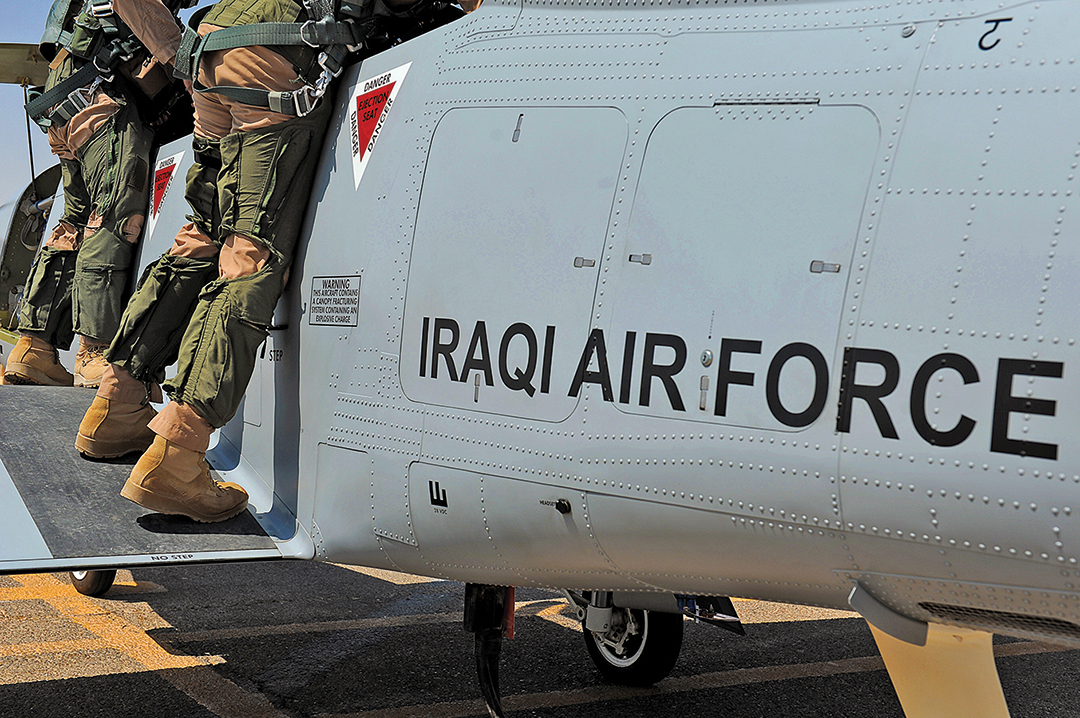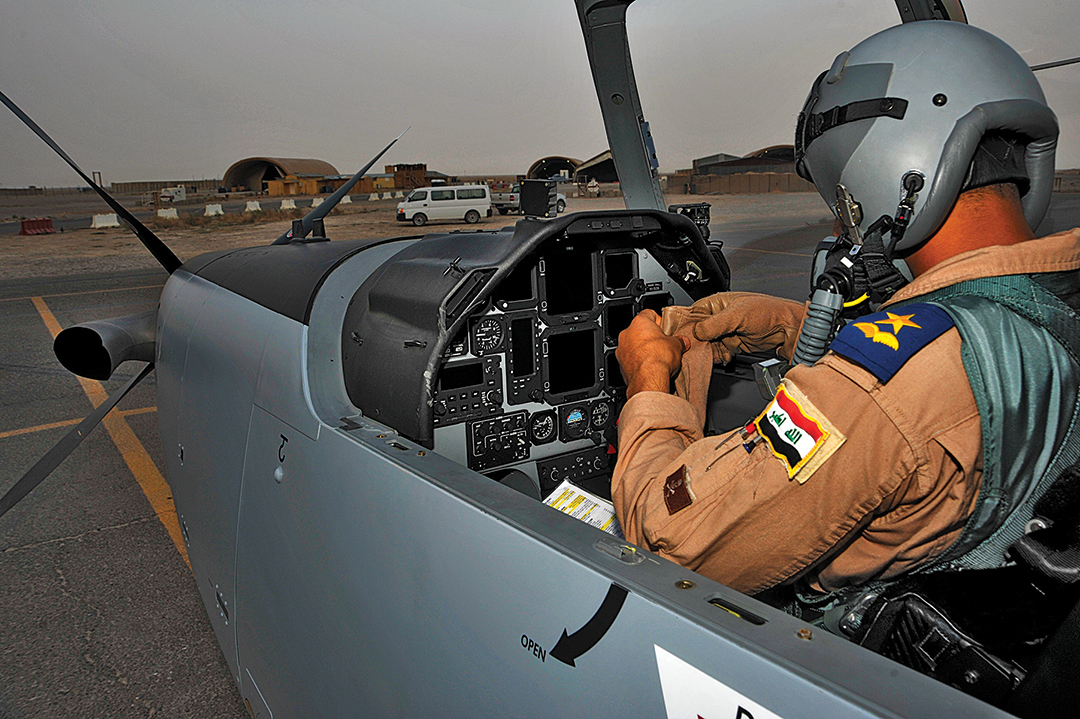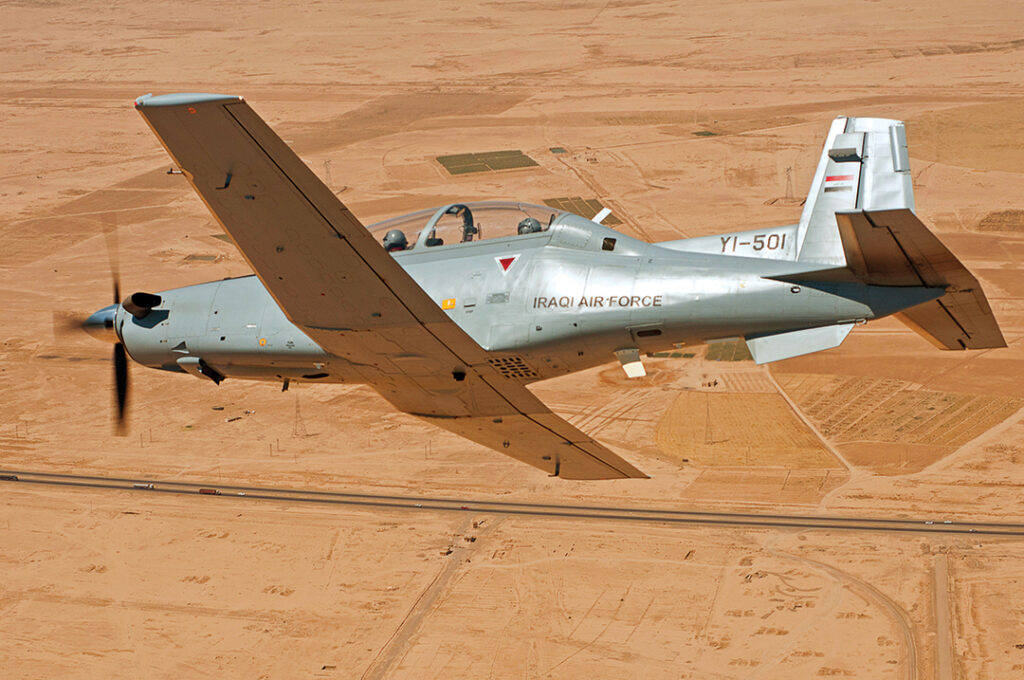IRAQI MAJ. GEN. (RET.) LUTFI ABDULWAHAB HUSSEIN
Achieving air sovereignty requires the state to mobilize materiel and morale to achieve a proper balance among all branches of the armed forces. The history of the Air Force in Iraq provides lessons — both helpful and harmful — that can inform the conduct of future generations of military and political leaders.
The Iraqi Air Force emerged triumphant from its long war with Iran in the 1980s, but much of that local military superiority was squandered during the occupation of Kuwait in 1991, which led to the destruction of half Iraq’s air strength. The resulting shift in the balance of power became a cause for concern.

In the decades that followed, Iraq was left with deficiencies in two related commands — Air Force and Air Defense — and required a scientifically and technologically based overhaul of the entire system. The deficiencies were numerous:
Organization: The absence of a clear policy at the state level left a vacuum in military strategy and ambiguity in military doctrine that precluded the integrated operation of the Armed Forces, leading to violations of air sovereignty.
Training: Shortcomings in international training deprived the country of combat-ready pilots to provide air defense.
Types and sources of weapons: Procuring weapons from a single source deprived the Air Force and Air Defense of armaments needed to perform its duties to address external threats.
Infrastructure and use of weapons: Shortcomings in air base infrastructure and auxiliary airfields limited the option of interceptor planes to perform emergency landings after completing missions. In addition, passive employment of weaponry constituted a significant weak point in terms of air sovereignty.
The Ministry of Defense and the General Command of the Armed Forces formulate the military basis of state policy under the guidance of the political leadership. Civilian leaders alone have the right to direct the military in accordance with Iraq’s foreign policy, considering the materiel, morale and military potential of the state.

Achieving a level of air power to defend state sovereignty requires the following:
A command and operational structure designed for the integration and interaction of the Air Force and Air Defense commands that serves air combat.
Sufficient flexibility to respond to any type of challenge and the ability to evolve in line with threats and available capabilities such as air-to-air weapons, surface-to-air weapons, electronic warfare and radar detection at various altitudes.
Optimal use of existing capabilities and resources and the development of infrastructure of bases and auxiliary airfields in line with potential theater of operations.
Establish professional loyalty as the main criteria for leadership positions; do away with the bloated ranks and sectarian quotas in the Air Force and Air Defense commands.
Conduct meaningful and scientific research into weapon sources for the Air Force and Air Defense commands without adopting the sole source option for weaponry.
Form near-term plans to integrate Air Defense weapons (intercept aircraft and missiles) and a long-term plan to address the issues mentioned above.
Summary
What happened to the Air Force represented a setback. Wise nations draw lessons from these setbacks so that future generations can guard against them. Developments in aircraft and its technology have been accompanied by developments in their tactical and strategic use.
Aircraft no longer operate alone in countering threats to state sovereignty. Weaponry operating in parallel with planes and helicopters, such as air defense systems and drones, provides extra capacity necessary for a strong Air Force.

